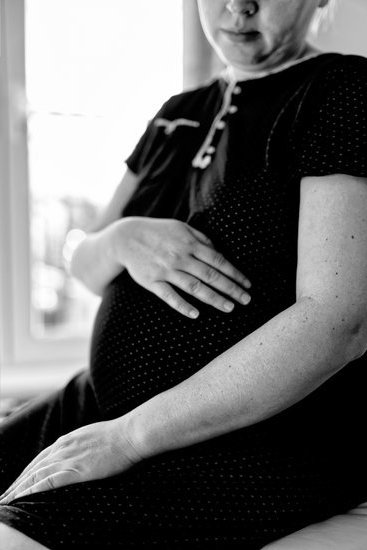How soon after conception pregnancy test is a common question among those who suspect they may be pregnant. Conception marks the beginning of pregnancy, occurring when a sperm fertilizes an egg, leading to the formation of a zygote. This zygote then implants itself into the uterus and begins to develop into an embryo. Understanding this process is crucial in determining when it’s appropriate to take a pregnancy test.
For many women, early signs of pregnancy such as missed periods, nausea, fatigue, and breast tenderness may prompt them to consider taking a pregnancy test. With a variety of pregnancy tests available in the market, from urine-based tests to blood tests, it’s essential to understand how they work and when they can provide accurate results. Factors such as the sensitivity of the test and timing can affect the reliability of the results.
The timeline for taking a pregnancy test after conception varies depending on the type of test being used. In general, most at-home urine tests can detect pregnancy around 7-10 days post-conception, while blood tests are even more sensitive and can provide accurate results as early as 6-8 days post-conception. Understanding these timelines is crucial in ensuring reliable results and avoiding false positives or negatives that may occur due to testing too early.
Detecting Early Pregnancy Symptoms
During the early stages of pregnancy, a woman’s body goes through various changes as it prepares to nurture a developing fetus. Understanding the common signs and symptoms of early pregnancy can help individuals recognize when it may be time to take a pregnancy test. Here are some typical indicators that may prompt the need for a pregnancy test:
- Missed Period: One of the most classic signs of pregnancy is a missed period. If you have regular menstrual cycles and suddenly skip a period, it could indicate pregnancy.
- Morning Sickness: Nausea and vomiting, commonly referred to as morning sickness, can start as early as two weeks after conception for some women.
- Fatigue: Feeling unusually tired or exhausted even with adequate rest can also be an early sign of pregnancy due to hormonal changes.
Knowing these early signs can prompt individuals to consider taking a pregnancy test to confirm their suspicions. However, it’s essential to understand how soon after conception a pregnancy test can accurately detect the presence of hCG hormone in the body.
Once conception occurs, the fertilized egg begins producing human chorionic gonadotropin (hCG), a hormone that is detected by most home pregnancy tests. The timing for taking a pregnancy test after conception varies depending on the type of test used. Here is a general guideline based on different types of tests:
- Early Detection Tests: Some early detection tests claim they can detect hCG levels as early as 6-8 days after ovulation or about 5-7 days before your expected period.
- Standard Home Pregnancy Tests: Most standard home pregnancy tests recommend waiting until your first day of missed period for accurate results since they typically detect hCG levels at around 12-15 days after ovulation.
- Blood Tests: Blood tests done at a healthcare provider’s office can detect hCG levels earlier than urine tests, usually able to provide accurate results within 6-8 days post ovulation.
It’s important to note that taking a test too soon after conception may result in false negatives due to low hCG levels in the body. Therefore, if initial testing produces negative results but you suspect you might still be pregnant, consider testing again in a few days or consult with your healthcare provider for further guidance.
Types of Pregnancy Tests
When it comes to confirming a pregnancy, there are several options available in the market for different types of pregnancy tests. These tests work by detecting the presence of human chorionic gonadotropin (hCG), a hormone produced by the placenta after conception. Understanding the different types of pregnancy tests can help individuals choose the most suitable option for their needs.
Over-the-Counter Pregnancy Tests
One common type of pregnancy test is the over-the-counter (OTC) test, which can be easily purchased at pharmacies or stores without a prescription. These tests typically come in two forms: urine-based and blood-based.
Urine-based tests are convenient and easy to use at home, while blood-based tests may be conducted at a healthcare provider’s office for more accurate results. OTC pregnancy tests are designed to detect hCG levels in urine samples, providing results within minutes.
Digital Pregnancy Tests
Digital pregnancy tests are another option available in the market that offers clear results through digital displays. These tests work similarly to traditional OTC tests but provide a digital readout such as “pregnant” or “not pregnant.” Digital tests may also offer additional features like estimating how far along you may be in your pregnancy based on hormone levels. While slightly more expensive than regular OTC tests, digital pregnancy tests can provide reassurance and clarity with their straightforward results.
Early Detection Pregnancy Tests
For those eager to find out if they are pregnant as soon as possible after conception, early detection pregnancy tests are available. These tests are designed to detect lower levels of hCG than traditional OTC tests, allowing individuals to test earlier before their expected period.
However, it is essential to follow the manufacturer’s instructions carefully to ensure accurate results when using early detection pregnancy tests. The sensitivity of these tests may vary, so it is crucial to choose a reliable brand for better accuracy in detecting hCG levels shortly after conception.
By understanding the different types of pregnancy tests available in the market and how they work, individuals can make informed decisions on which test to use based on their specific needs and preferences. Whether opting for an over-the-counter test, digital test, or early detection test, following instructions carefully and considering factors like sensitivity and cost can contribute to obtaining accurate results efficiently after conception.
How Soon Can You Take a Pregnancy Test After Conception
After conception, many women may wonder how soon they can take a pregnancy test to confirm whether they are pregnant or not. The timing of taking a pregnancy test after conception can vary depending on the type of test and its sensitivity to detect hCG (human chorionic gonadotropin), the hormone produced during pregnancy. Generally, most over-the-counter urine pregnancy tests claim to provide accurate results as early as the first day of a missed period.
It is recommended to wait at least one week after a missed period before taking a home pregnancy test for more reliable results. However, some early result pregnancy tests can detect the hCG hormone in urine as early as 5-6 days before your missed period. These tests are designed to be more sensitive and may be able to provide accurate results sooner after conception.
| Type of Pregnancy Test | Timing for Accurate Results After Conception |
|---|---|
| Standard Over-the-counter Urine Test | 1 week after missed period |
| Early Detection Pregnancy Test (e.g. First Response) | Up to 6 days before missed period |
Factors Affecting Test Accuracy
When it comes to taking a pregnancy test shortly after conception, there are certain factors that can affect the accuracy of the results. One key factor is the timing of the test. Different pregnancy tests have different sensitivities in detecting the pregnancy hormone hCG (human chorionic gonadotropin).
Some tests are more sensitive and can provide accurate results sooner than others. For example, some early detection pregnancy tests claim to be able to detect hCG levels as early as 6 days before your missed period.
Another factor that may influence the accuracy of a pregnancy test shortly after conception is how well you follow the instructions provided with the test. Improper usage of the test, such as not using first-morning urine or not waiting for the specified amount of time for results, can lead to false negatives or positives. It’s essential to carefully read and follow the instructions that come with your chosen pregnancy test to ensure reliable results.
Additionally, certain medications or medical conditions may also impact the accuracy of a pregnancy test shortly after conception. Medications containing hCG or fertility treatments can interfere with the results of a pregnancy test.
Similarly, conditions such as polycystic ovary syndrome (PCOS) or certain types of cancer that produce hCG can lead to misleading results. If you have concerns about how these factors may affect your test results, it’s advisable to consult with a healthcare provider for further guidance and support.
| Factors Affecting Test Accuracy | How They Influence Pregnancy Test Results |
|---|---|
| Timing of Test | Different tests have different sensitivities; some may provide accurate results sooner than others. |
| Adherence to Instructions | Proper use is crucial for reliable results; not following instructions can lead to false readings. |
| Medications/Conditions | Certain medications or medical conditions like PCOS can impact hCG levels and result in inaccurate outcomes. |
These factors play a significant role in determining how soon after conception a pregnancy test should be taken and its reliability in confirming whether you are pregnant or not. By being aware of these influences on test accuracy, individuals can make informed decisions about when and how to take a pregnancy test for optimal results.
Remember, if there are doubts or uncertainties regarding your pregnancy status, seeking professional advice from a healthcare provider is always recommended for further evaluation and confirmation.
False Positives and False Negatives
Understanding False Positives and False Negatives
False positives and false negatives are errors that can occur in pregnancy tests, leading to misleading results. A false positive result indicates that the test shows a positive pregnancy when you are not actually pregnant. On the other hand, a false negative result means the test shows a negative result when you are actually pregnant. These errors can be caused by various factors and understanding them is crucial for accurate interpretation of the test results.
Causes of False Positives
One common cause of false positives is medications that contain hCG, the hormone detected in pregnancy tests. Certain fertility drugs or medications used for treating hormonal disorders may contain hCG and can give a false positive result.
Additionally, an evaporation line, which may appear as a faint second line on the test strip after it has dried, can also be mistaken for a positive result. It is important to read the results within the specified time frame mentioned in the test instructions to avoid misinterpretation.
Causes of False Negatives
Factors such as testing too early after conception or using diluted urine can lead to false negative results. The concentration of hCG in urine may not be high enough to be detected by the test shortly after conception, resulting in a negative reading. It is recommended to wait until at least one week after your missed period to increase the accuracy of the test. Additionally, taking certain medications or improper testing techniques can also contribute to false negative results.
Tips for Taking a Pregnancy Test
Taking a pregnancy test can be a nerve-wracking experience, especially if you are eagerly waiting to see if you are expecting. To ensure the most accurate results, here are some useful tips on how to properly take a pregnancy test:
- Read the Instructions: It may seem obvious, but many people skip over the instructions that come with the pregnancy test. Make sure to carefully read and follow the instructions provided by the manufacturer. Each test may have specific steps for accurate results.
- Use First Morning Urine: The first urine of the day is typically more concentrated with higher levels of hCG hormone, which is what pregnancy tests detect. For the most accurate results, it is recommended to use your first morning urine when taking a pregnancy test.
- Check the Expiry Date: Before using a pregnancy test, always check the expiry date on the packaging. Using an expired test may give you inaccurate results. It is best to use a recent and unexpired test to ensure reliability.
When taking a home pregnancy test, ensure that you follow these tips for the most accurate results possible. If you receive a positive result, it is advisable to consult with your healthcare provider for further confirmation and guidance. Remember that early detection of pregnancy allows for timely prenatal care and support.
Remember that each individual’s body may react differently, so it is important not to rely solely on home pregnancy tests for definitive answers. Seeking professional guidance from a healthcare provider can help confirm and provide appropriate care during this special time in your life.
Seeking Professional Guidance
In conclusion, knowing how soon after conception a pregnancy test can accurately detect pregnancy is crucial for individuals who are trying to conceive or suspect they may be pregnant. Understanding the process of conception and early pregnancy symptoms can help individuals decide when to take a pregnancy test for the most accurate results.
While some tests claim to detect pregnancy as early as a few days after conception, it is important to consider factors that may affect the accuracy of the test.
Factors such as the sensitivity of the test, timing of implantation, and levels of hCG hormone in the body can all play a role in determining when to take a pregnancy test after conception. Additionally, factors like medications, fertility treatments, and underlying health conditions can impact the accuracy of the results. It is advisable to follow the instructions provided with the pregnancy test and consult with a healthcare provider if there are any concerns about the results.
In cases where there is uncertainty or conflicting results from home pregnancy tests, seeking professional guidance from a healthcare provider is recommended. Healthcare providers can conduct further assessments using more sensitive tests and provide confirmation of pregnancy through blood tests or ultrasounds. Ultimately, consulting with a healthcare provider can offer peace of mind and ensure proper prenatal care for those who are expecting.

Welcome to my fertility blog. This is a space where I will be sharing my experiences as I navigate through the world of fertility treatments, as well as provide information and resources about fertility and pregnancy.





